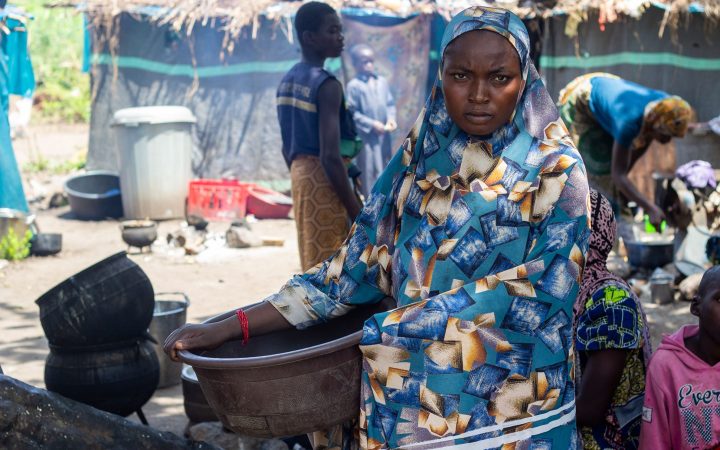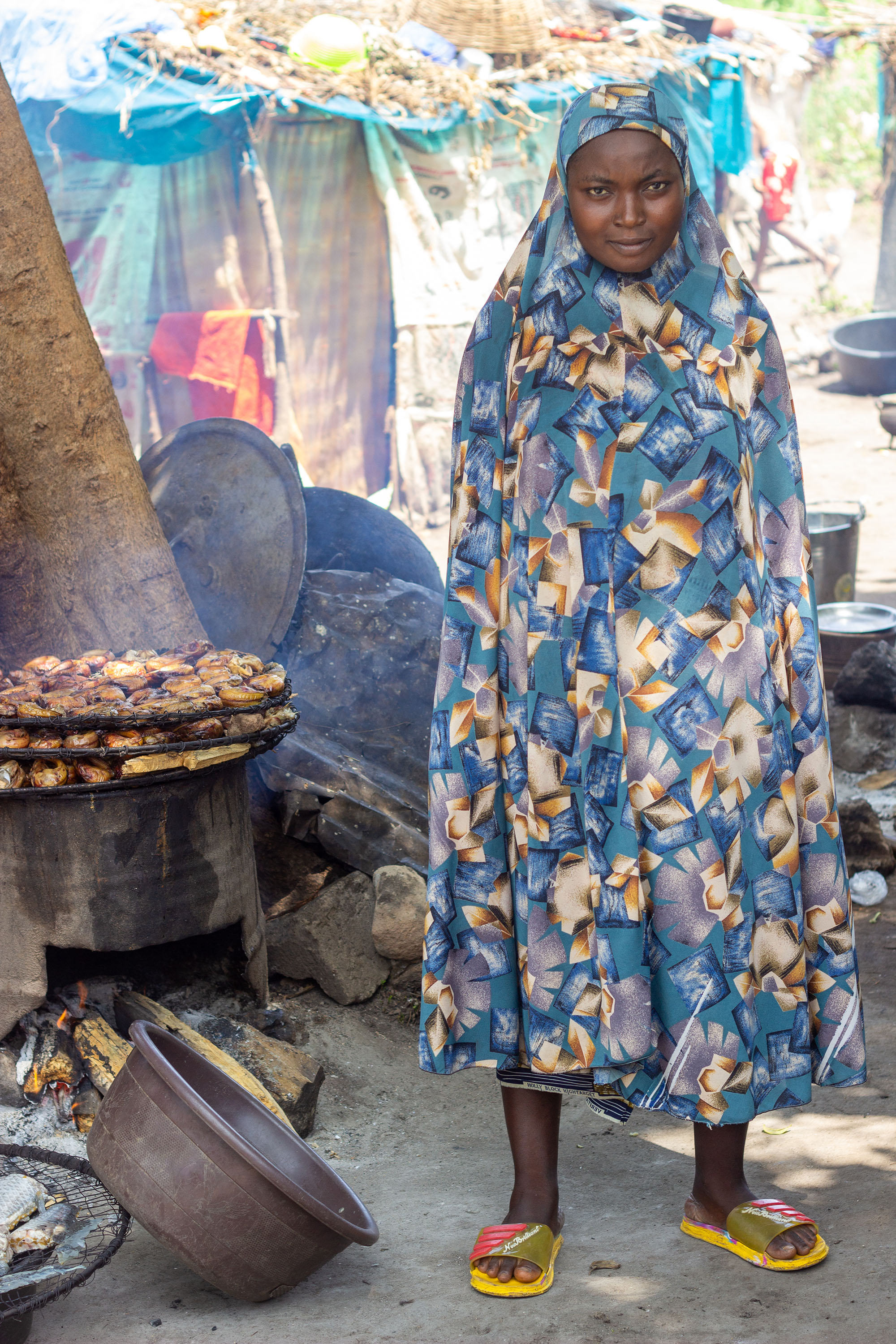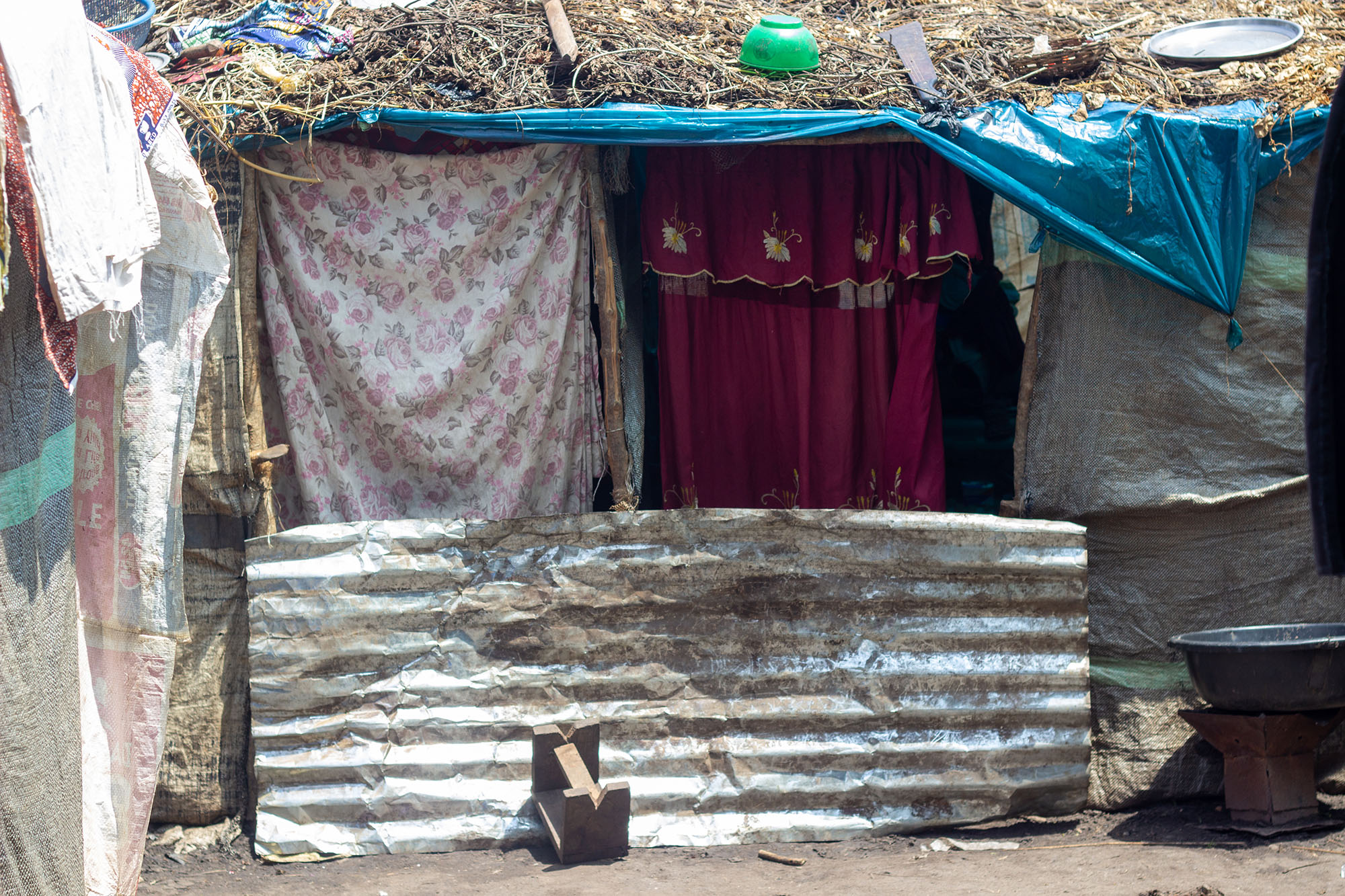COUNTRY UNDER WATER
Flood disaster sees Nigeria grappling with food insecurity and cholera

Flooding in Nigeria has displaced more than two million people, left at least 600 dead and increased the threat of cholera. The situation is dire across the affected 33 of the country’s 37 states. Data released on 24 October by the Nigerian National Emergency Management Agency says that more than 390,000 hectares of farmlands have been submerged by flood water. Not only is current agriculture investment ruined, but food security in 2023 also hangs in the balance.
For 30-year-old Fatima Abdulmumini and her family, the water rushing into their home was already waist-deep when it woke them around 3am a few weeks ago.
Confused and afraid, they fled to higher ground where they stayed for four days — until flood waters swirled around them once again, forcing them to seek even higher ground as the water kept rising.
Adbulmumini says they lost everything.
“We had rice seedlings which we wanted to plant and kept it on a ledge in storage, but lost it all with other valuables… we didn’t know the water would be this much.”
Worst floods in a decade
Nigeria is dealing with the worst floods in a decade, and Fatima’s story is not very different from those of thousands of others who have been displaced by floods in Lokoja, Kogi State and other states across the country.
Lokoja sits at the confluence of the River Niger and River Benue. The people who live here, mostly fishermen and farmers, are not unfamiliar with occasional rising water levels, especially during the rainy season from April until around October.
But this year saw more devastation than anticipated.
The Nigeria Meteorological Agency had warned that states should expect floods due to increased rainfall. Entire road networks have been cut off, causing supply chain problems that have led to an increase in the cost of food and other essential supplies like fuel and medicine.
In the Niger Delta region, Bayelsa State was entirely cut off from the rest of the country, leaving people desperate as there was no way to get supplies to those who most needed them.
There have been reports of snake bites and corpses — previously buried in shallow graves — found floating.
Data released on 24 October by Nigeria’s National Emergency Management Agency, over 390,000 hectares of farmlands have been submerged by flood water.
Food security threat
Not only has current agriculture investment been ruined, but the prospects for food security in 2023 are now under threat.
Olam Farms, which operates Africa’s largest rice farm in Nasarawa state, lost 4,500 hectares of rice farm worth over $15-million. Olam presently supplies more than 50% of Nigeria’s rice consumption.
It is expected that the floods will lead to a shortage of supply which will, in turn, cause a spike in the price of one of Nigeria’s most consumed staples.
Nigeria is already food insecure in a number of states, particularly in the northern part of the country.
With an official inflation rate of 20.7%, a rise in food prices will add to the stress Nigerians are already experiencing.
Even before the flood, 19.4 million people were considered food insecure, according to the Cadre Harmonisé, due to a combination of conflict, after-effects of Covid, climate change and the Russia/Ukraine war.
The Nigerian Red Cross, the largest humanitarian organisation in Nigeria, is reporting that 2.8 million people have been affected by the floods. Over 600 are dead, 2,500 injured and two million people have fled or were evacuated from high-risk areas.
That is not the end of the damage.
Disease
Nigeria is both malaria and cholera endemic, and even without major floods, these two diseases are the leading causes of mortality in the country.
As of October this year, the Nigerian Center for Disease Control has recorded 10,217 cases of cholera with 233 deaths.
Nigeria Country Director of the International Rescue Committee, Babatunde Anthony Ojei, said in a media release on 21 October: “At least 13 government areas are experiencing a deadly cholera outbreak, with more than 6,000 cases and a 4-5% case fatality ratio.”
With so many states flooded, there is also a heightened fear of a spike in malaria cases. There is an urgent need to support the affected communities to prevent a severe health emergency.
Visit Daily Maverick’s home page for more news, analysis and investigations
Fatima Abdulmumini, along with her five children, now live in an internally displaced people’s camp in Gbangede near Lokoja in Kogi state.

Fatima Abdulmumini and her five children (not pictured) now live in an internally displaced people’s camp in
Gbangede near Lokoja in Kogi state, Nigeria. (Photo: Aduratomi Bolade)
“Before the floods, some of my children were going to school… now I can’t afford to send them to school,” she says, dejection clearly written on her face.
The camp has no leadership structure and no support from the government or any other agencies. Dauda Haruna, one of the inhabitants of the camp, says people are barely getting by.

Fatima Abdulmumini lives in this makeshift shelter with her five children. (Photo: Aduratomi Bolade)
“For most, once they get something to eat in the morning, that’s it for the day. Many people here lost all their food supply to the floods.”
Most of the inhabitants of this camp are farmers and fishermen, left destitute as they wait for the flood waters to recede so they can pick up what is left of their already difficult lives.
Fatima now uses what little income she gets from selling smoked fish to care for her family, as she continues to mourn her losses and waits to return home and start over again. DM

















 Become an Insider
Become an Insider
Comments - Please login in order to comment.